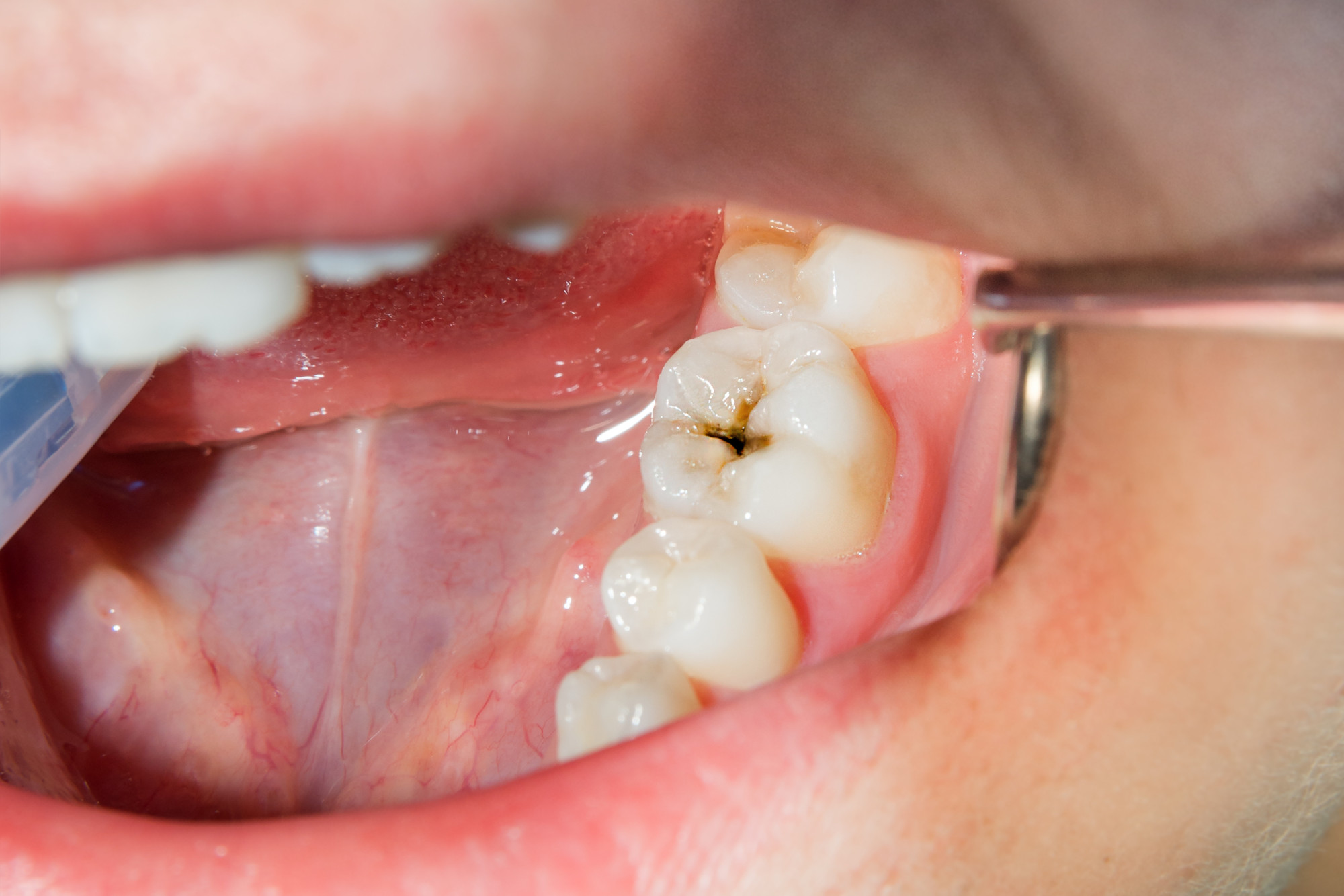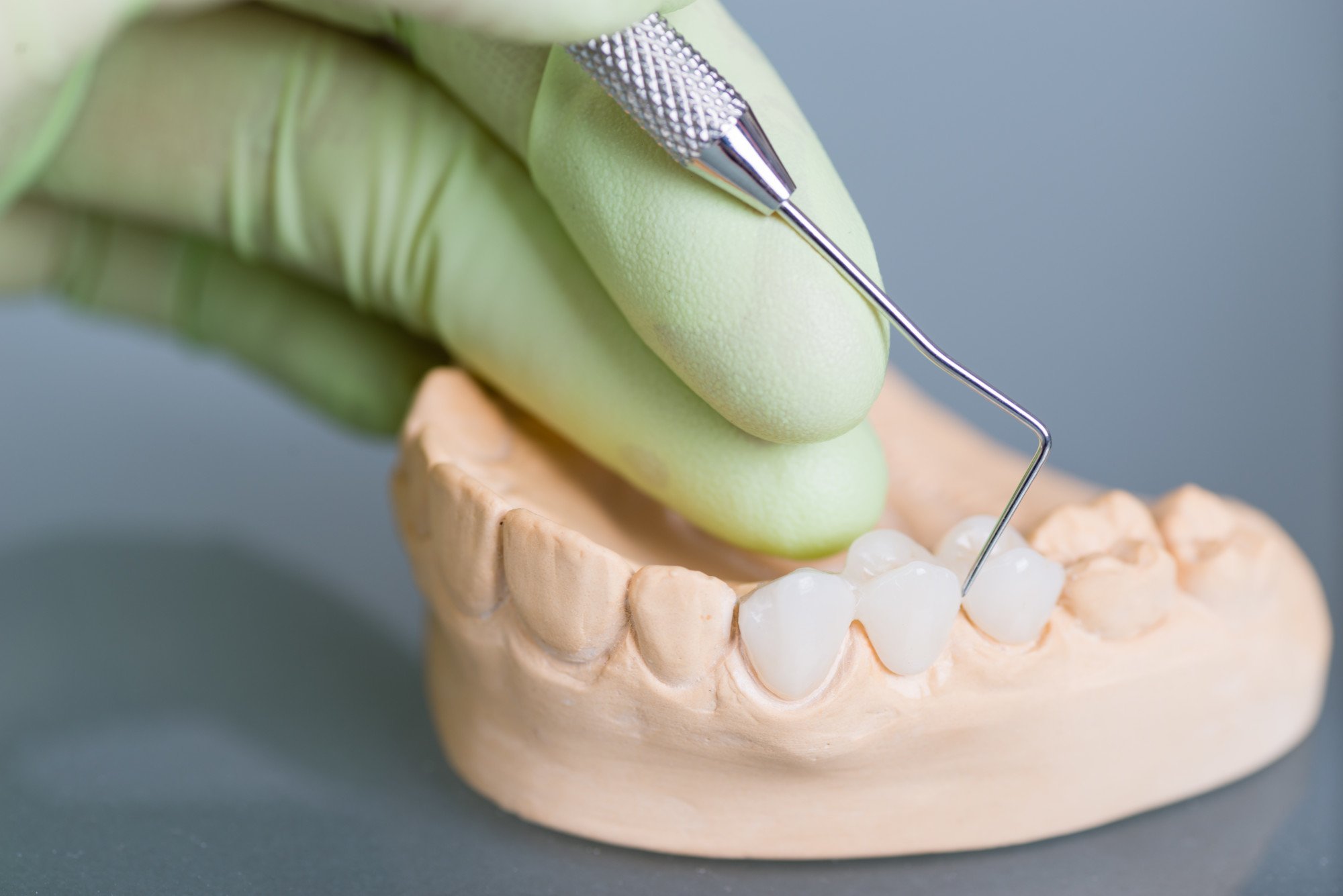
Nobody wants to think about going to the dentist to spend large sums of money on procedures they don’t want to get. It’s a familiar pain for many. Believe it or not, more than 1 in 4 US adults have untreated tooth decay.
However, treating cavities early is essential, and it’s helpful to know what’s involved in the process. So, what causes cavities, and how do dentists fix cavities? Let’s talk about that so you can find the help you need today!
What Are Dental Cavities?
A cavity is not just a hole in a tooth; it’s a permanently damaged area on the hard surfaces of your teeth. These can develop in a number of ways, but they will inevitably get worse over time without treatment. Similar procedures may be necessary for trauma to your teeth, which can also cause breakages or cavities.
Fixing cavities before they get worse is essential, which requires different procedures based on the severity of the cavity. More on that later.
What Causes Cavities?
Cavities are caused by a mix of sugar and bacteria. It’s nearly impossible to completely avoid sugary foods or beverages in your diet, and there are trillions of bacteria living in your mouth at any given time. Without proper oral hygiene care, sugar and bacteria are left to cause more damage to your teeth.
This has a corrosive effect on your teeth, which will no longer need new sugar or bacteria to cause damage. Once there is existing rot, it can continue to spread on its own.
Why Do You Need to Fix Cavities?
If this sounds like a silly question to you, that’s good. Still, it’s important to note that cavities will continue to harm your teeth if left untreated. The longer you leave them, the most costly and challenging they will be to repair.
More importantly, cavities will spread to other teeth if given enough time. Treating cavities as soon as possible is always the best solution.
How Do Dentists Fix Cavities?
Fixing cavities is one of the most common practices in a dentist’s office. Fortunately, that means that it’s time-tested and perfectly safe. While every case is different, here’s what you can expect when you have a cavity.
Diagnosing
First, dentists will need to know what treatment is appropriate. Typically, they will have an initial visit to do X-rays and routine cleanings, and this is when they will discover cavities. From there, they will make an appointment for you to come in and get a filling.
If you suspect that you may have a cavity, you can also schedule an appointment with your dentist directly for X-rays and diagnostics. If they discover that you need a filling, root canal, or any other procedure, they will set up a follow-up appointment with you for the procedure.
In most cases, this will be within a month or two. Your dentist will not want to leave your cavity untreated. It’s best to plan ahead with work or school to ensure you can make it to your appointment on time.
Anesthesia
Children will sometimes receive nitric oxide or “laughing gas” before a filling procedure. This is especially common for tooth extractions or root canals, but it could be appropriate for a filling that is difficult to access.
Otherwise, you should expect local anesthesia or another type of numbing agent. They will allow you to wait until the agent starts working before beginning the procedure, which could take 10 to 20 minutes. This is left to the dentist’s discretion based on your needs, so ask ahead of time if you’re concerned!
Drilling
Your dentist will need to drill around the cavity for access and to remove any surrounding decay. The cavity may be inaccessible, so your dentist may need to remove enamel to access the cavity. Also, if the decay is left, it will continue to rot your tooth, even after the filling.
If this sounds scary to you, don’t worry! Your anesthesia will ensure that you don’t feel a thing during the entire procedure.
Cleaning
If the dentist puts a filling over a film of sugar, acid, and bacteria, what’s going to happen? The tooth is going to continue to decay, and the procedure will have been for nothing.
For this reason, your dentist will need to clean the surrounding area to ensure that the filling will bind to your new tooth and remain secure. This way, your cavity will not continue to decay where the filling is taking hold.
Filling
From there, your cavity will be filled with a special material to replace the missing enamel. There are dozens of materials used for crowns and fillings, but some of the most common filling materials include:
- Gold
- Porcelain
- Ceramic
- Composite resin
- Plastic
- Silver amalgam
The list goes on. Ask your dentist what they plan to use, and let them know if you have a specific preference. For molars, metal or metal-infused materials tend to be best, as they are the strongest.
Recovery
For many fillings (not all), dentists will numb the area with local anesthesia. If the cavity is just on the surface, this isn’t always necessary.
It’s unlikely you will experience any pain during or after a filling procedure. However, if you do experience pain or discomfort, let your dentist know immediately.
The only thing that’s certain is that you will need to avoid eating for a few hours after the filling. You may also need to avoid certain foods (especially hard or sticky foods) for 24 to 48 hours. Your dentist will let you know!
What If a Filling Isn’t Enough?
Sometimes, cavities get out of hand, and a typical filling isn’t enough. In this case, you may need a root canal or even a tooth extraction.
Of course, if you keep up with your routine visits to your local family dental practice, you won’t have to worry about this. Serious dental issues take time to develop, so visiting every 6 months is often enough to discover minor issues. However, if you have waited a long time to see your dentist, or if you haven’t taken care of your teeth, a root canal may be necessary.
Overall, get the procedure done as soon as possible if you have a cavity. A simple filling will not cost a lot, it won’t do much damage to your teeth, and it’s a much easier procedure to undergo. But, if you do need a root canal, here’s what to expect.
Root Canal Procedure
For a root canal, your dentist will provide you with local anesthesia to numb the area. This will wear off after a few hours.
From there, they will need to drill into the root of your tooth, likely removing a significant portion of the enamel. Your dentist will then need to make a follow-up appointment to add a crown to your tooth. If you aren’t careful in the meantime, you could easily break that tooth.
Tooth Extractions
If you need a tooth extraction, then they will need to sufficiently numb the area and extract the tooth by the root. This is most common for children who still have their baby teeth. Extraction is the best way to prevent serious rot from reaching adult teeth, which is impossible to treat with the baby tooth still present.
However, adult teeth that rot through the root may also need extraction. If the root and tooth require extraction, this is a much more challenging procedure.
For children, you can simply leave the missing tooth in most cases, as the adult tooth will eventually grow in its place. However, if an adult tooth needs extraction, you will need to replace the tooth with a bridge or implant. This will require follow-up procedures for fitting and securing the new crown.
Recovery
Because root canals involve the root of your tooth, discomfort is far more likely. Ask your dentist about the recovery period and what to expect, as every procedure is different. If you experience substantial pain or discomfort, contact your dentist right away.
In most cases, discomfort should subside within 1 to 3 days, if you even feel any at all.
Tooth extractions are different. Extracting a baby tooth may not cause any lasting pain or discomfort, but removing an adult tooth and root may. Talk to your dentist before the procedure to ask about the recovery timeline for your specific procedure.
Preventing Cavities
The absolute best treatment for cavities is prevention. A root canal is better than an extraction, and a filling is better than a root canal. However, no filling at all is the best solution.
Your teeth are the strongest when they are complete. Drilling into your teeth and filling cavities is not ideal for overall integrity. Protecting your existing enamel is the best way to prevent cavities.
Flossing
Floss, floss, floss. We cannot say it enough. Flossing is essential for your daily routine, and you should do it at least once a day.
Floss picks are the easiest and most convenient way, but you can choose how you want to do it. Just make sure to get between all of your teeth and remove as much plaque and food residue as possible. Do this before brushing for the best results.
Brushing
We probably don’t need to tell you the importance of brushing your teeth, but we do need to remind you to do it properly. Many adults still brush very hard. If your bristles bend over time, you’re brushing wrong.
When you brush too hard, you actually harm your enamel. Instead, brush very gently in small circles for the best results. The tips of the bristles are what remove plaque, so brushing hard and pressing them in is counter-productive.
Mouthwash
If you don’t currently use mouthwash in your daily routine, you should start. Brushing your teeth and the top of your tongue is important, but what about the other 80% of your mouth? Mouthwash is the most effective at reaching difficult areas within your mouth, and it can go a long way for cavity prevention.
Find a mouthwash that offers cavity prevention, or ask your dentist for recommendations. From there, try to use the product as directed. Make sure you swish it around in your mouth thoroughly and try to reach everywhere in your mouth before spitting it out!
Avoiding Sugary Foods and Beverages
Sugar is in nearly every aspect of the typical American diet. This is a sad fact for our overall health, but especially for our oral health. Sugar is the number one cause of cavities, so limiting your sugar intake is a great way to prevent cavities.
Believe it or not, people from the 19th century and before typically had fewer cavities, even though they had fewer options for oral hygiene. This is mostly because sugar was considered an uncommon commodity for most. Most of the population relied on vegetables and grains to survive, which preserved their teeth quite well.
However, now we have sugar in everything from our ketchup to salad dressings and coffees. Being mindful of your sugar intake, especially in beverages, will go a long way for your oral health.
Shine Bright and Stay Healthy
So, how do dentists fix cavities? It really depends on your needs, how soon you address the issue, and how well you take care of your teeth. Fortunately, that means there’s a lot you can do to make the process as easy as possible.
For the best results, find a dentist near you, and don’t neglect your routine checkups. After that, keep reading our blog for our latest wellness tips and keep yourself healthy! You can do so by searching phrases like “dentist near me salem” or “dentist near me”.





